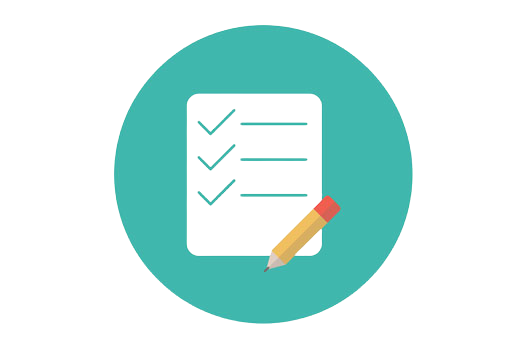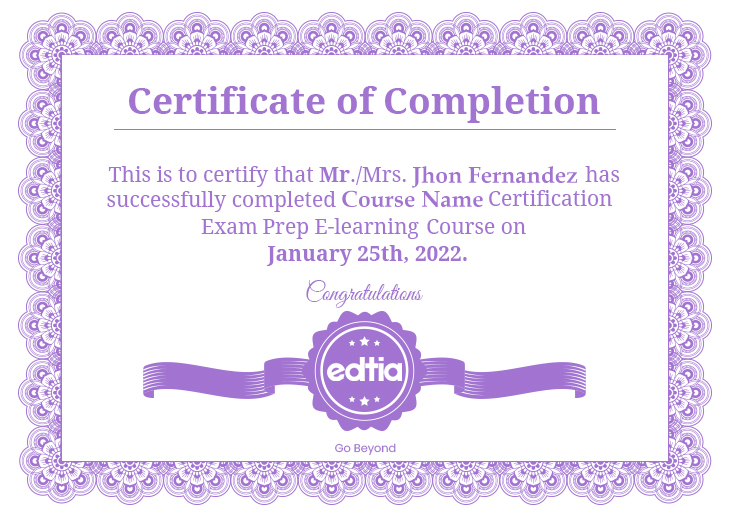Your Shopping Cart

Bestseller
Enroll now to become an Angular expert with EDTIA Angular Certification Training, upgrade your skills, and lead your professional life.
This Certification course will train you to develop efficient Angular applications by mastering the concepts of Angular 12. After finishing this Angular training, you will be able to create dynamic, responsive, and interactive web applications utilizing Angular concepts such as Angular Modules, Components, Databinding, Angular Forms, etc.
Angular is a platform and framework for creating single-page client applications utilizing HTML and TypeScript. Angular is written in TypeScript, and it implements core and optional functionality as a set of TypeScript libraries that you import into your applications.
Angular is an open-source, JavaScript framework written in TypeScript. Google supports it, and its primary purpose is to create single-page applications. Angular has apparent advantages as a framework while also delivering a standard structure for developers to work with.
Angular is a development platform built on TypeScript. Angular includes a component-based framework for building scalable web applications as a platform. A collection of well-integrated libraries covering different features, including routing, forms management, client-server communication, etc.
Angular is Javascript framework developers use to build web, desktop, and mobile applications. Development of Angular applications involves the usage of Typescript, which is a superset of Javascript, HTML, CSS, etc.
Angular is a magical front-end platform that allows the development of mind-blowing applications and enables the creation of high-end animations to enhance the user experience. The API of Angular is so intuitive that developers can brew complex choreography and energy with low code.
Angular elements are Angular components packaged as custom elements (also called Web Components), a web standard for defining new HTML elements in a framework-agnostic way.
This Angular certification course module will introduce you to the basic constructs of web application development, MVC architecture, what is Angular and the differences between single and multiple page applications. You will also learn how to install Angular and make use of NPM packages.
In this Angular training course module, you will learn about Angular Modules and Components. You will also learn how to build the application layout using selectors, templates, and styles
In this Angular certification module, you will learn about Angular Databinding and Animations.
In this Angular training course module, you will learn how to manipulate DOM and add filters using Angular directives and pipes.
In this Angular certification exam module, you will learn how to create Angular services and inject it using dependency injection.
In this module, you will learn how to perform HTTP requests and receive response from the backend servers.
n this module, you will learn how to configure Angular routes and navigate between different components.
In this module, you will learn how to deal with building a form using two approaches- template-driven and reactive. You will also learn about underlying building blocks of form model and types of directives with respect to the two types of forms
Validating Angular Forms
In this module, you will learn how to perform authentication using JWT (JSON Web Tokens)
learn how to perform application testing.
learn how to perform application testing.
Edtia Support Team is for a lifetime and will be available to assist with your questions during and after completing the Angular Certification Training.
Effective Cross-Platform Development. High Quality of the Application. Improved Speed and Performance. Faster Development Process. Readable and Testable Code. More Lightweight Web Applications. Efficient Problem-Solving Patterns. Excellent Material Design Library.
To better understand the Angular Certification Training, one must learn as per the curriculum.
If you have a basic knowledge of JavaScript, it would be easy to sail through. If but are not well-versed with your basics, then learning Angular will be an uneven, hilly patch for you.
Best jobs can be bagged using angular. Web development professionals can be made successful using angular. Also, it is being used by top multinational companies, so there is an excellent scope for employment in angularJS.
Angular is a platform and framework for building single-page client applications using HTML and TypeScript. Angular is written in TypeScript, and it implements core and optional functionality as a set of TypeScript libraries that you import into your applications.
Freshers and Aspiring Frontend (JavaScript) Developers UI/UX Developers Web Developers Software Developers


Every certification training session is followed by a quiz to assess your course learning.

The Mock Tests Are Arranged To Help You Prepare For The Certification Examination.

A lifetime access to LMS is provided where presentations, quizzes, installation guides & class recordings are available.

A 24x7 online support team is available to resolve all your technical queries, through a ticket-based tracking system.

For our learners, we have a community forum that further facilitates learning through peer interaction and knowledge sharing.

Successfully complete your final course project and Edtia will provide you with a completion certification.
Angular Training demonstrates that the holder has the proficiency and aptitudes to work with Angular.
By enrolling in Angular and completing the module, you can get the Edtia Angular Training Certification.
You'll gain in-depth insight into Angular, which will help you better understand its components. Plus, your Certification enables you to become a qualified Angular developer for your company. All these benefits allow you to understand you're Angular better and produce more valuable results for your business.
If you're ready for a career in a stable and high-paying field, Angular might be proper for you, and this Certification is the place to start.
